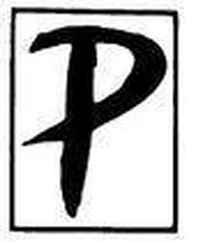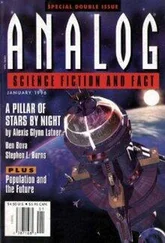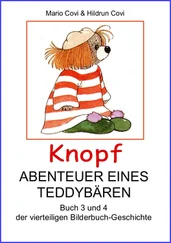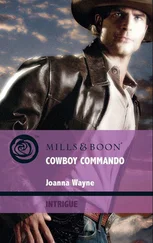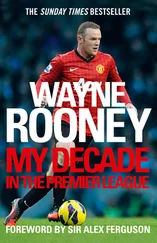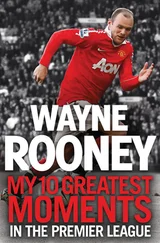While Steven’s mother fussed over his room’s décor, his father uncorked a geysering champagne bottle of hokey puns and jokes. “Matthews” became “math-use,” so now “students can finally find out how learning math will help them later in life!” When his son remarked that the Internet in the dorms was free, Mr. Zenger chortled uncontrollably. “Free!” he roared, clapping his hands. “I didn’t notice that when I wrote them a check last month! What a bargain! Free Internet!”
After a prolonged, maternally teary farewell — Mrs. Zenger smothered even me in her arms and assured me I was about to have the best year of my life — Steven invited me into his room. Nestled into a bean bag chair, he linked his hands behind his head, his collared shirt’s elbow-length sleeves encircling hangman-figure arms.
“There’s no lock on my door,” he said. “So feel free to come in whenever you feel like hanging out.”
“Okay,” I said, lingering at the threshold.
“So what are you majoring in?” he asked. “I mean concentrating in,” he threw in conspiratorially, now that we were in on the secret handshake of Harvard parlance.
“We don’t have to declare until sophomore year, right?”
“Yeah, but I already know I’m going to concentrate in physics. How about you? What’s your passion? What’re you into?”
I was into success, just like everyone else who’d gotten in here, but admitting that was taboo. Though I’d excelled in all subjects, I didn’t have the untrammeled intellectual curiosity of the true polymath. I was more like a mechanically efficient Eastern European decathlete grimly breaking the finish-line tape. Yet almost anyone could thrive in a field that consumed them. To lack ardor and still reach the zenith — that was a rare combination.
Because I never mentioned my grades to anyone and seldom spoke in class unless I had silently rehearsed my comments verbatim, my academic reputation never approached the heights of Alex Hines (yearbook prediction: Fortune 50 °CEO ), Hannah Ganiv ( poet laureate ), or Noah Schwartz ( President of the United States ). When the college acceptance list was posted, my classmates were shocked that I was our grade’s lone Harvard-bound senior. (David Federman’s yearbook prediction: ??? FILL IN LATER. )
But my teachers weren’t. My letter of recommendation from Mrs. Rice made that much clear. (Eager to read her formal appraisal of my virtues, I overstated the number of copies I needed. When she handed me the stack of envelopes, I giddily retreated to the boys’ bathroom, tore one open, and inhaled her praise like a line of cocaine in the fetid stall.) She wrote that I was “one of the most gifted students I have encountered in my twenty-four years teaching English at Garret Hobart High, already in possession of quite a fancy prose style (that sometimes goes over my head, I must admit!), although I can sense the immense strain human interactions put on him, whether in classroom discussions or individual conversations. It would be wonderful if David shared his observations more in class with his peers, who would surely benefit. But I have the utmost confidence that, with the properly nurturing environment, this young man, somewhat of a loner, will come out of his shell and be as expansive and eloquent in person as he is on the page.”
I looked at Steven, the extroverted physicist in training, the trajectory of his impassioned career already plotted with a suite of differential equations he had memorized, his shell long since shucked.
“I guess I’m still waiting to really get into something,” I said. “And if that doesn’t happen, there’s always a life of crime.”
Steven waited a moment before laughing.

Later that afternoon, the two of us headed downstairs for an orientation meeting. Steven swatted the casings of all the doorframes we passed through and leapt the last three steps of each flight of stairs while holding the railing.
A few dozen freshmen mingled in the basement common room, key cards dangling over chests from crimson lanyards. Taxonomies hadn’t been determined yet, hierarchies hadn’t formed. We were loose change about to be dropped into a sorter that would roll us up by denomination.
“Lot of cute girls here,” Steven said to me. He plopped himself on a couch and began chatting up a girl who wore a pink pair of those rubber shoes that individuate one’s toes like gloves.
I took the seat on his other side. A number of “cute” girls did indeed dot the couches and folding chairs, even one or two who could compete with Hobart High’s Heidi McMasters. (Our sole exchange, in eighth-grade earth science:
HEIDI: “Do you have a pen?”
DAVID: [ immediately hands her his best pen, never sees it again ])
A boy with chiseled forearms fuzzed with blond hair sat on the floor to my left. He was also not speaking to anyone, but seemed indifferent. I could tell he’d be popular.
“David,” I said, extending my hand.
He shook it and looked around the room. “Jake.”
“Are you from New York?” I asked, gesturing to his Yankees hat.
“Connecticut.” His face lit up as he raised his hand. Another freshman swaggered up to him and slapped it. I introduced myself to the new guy.
“Phil,” he said. They began talking about several people to whom they referred only by last names.
“You guys know each other from high school?” I asked.
“Same athletic conference,” Phil said.
“Oh, what sport?”
“Baseball,” he answered without looking at me.
Llabaseb, I thought — no, llabesab. I hadn’t reversed a word in a month or two; I was getting rusty, far from the fluency of my younger years. At twelve, without many interlocutors to speak of (or to), I began a dialogue with language itself, mentally reversing nearly every word I encountered in speech, signs, objects I saw: tucitcennoc (Connecticut), citelhta (athletic), draynal (lanyard). Doing so came naturally — I’d visualize the word, reading it from right to left, syllable by syllable — and it surprised me when it impressed others. My verbal ability was discovered that year at summer camp, where for three days all the kids besieged me with requests to apply it to their names; Edward Park’s was a crowd-pleaser. For those seventy-two hours I reveled in a social power I’d never had before, awaiting all the gnolefil spihsdneirf that would sprout from a few disordered words. Then the boy who could flip his eyelids inside out stole my thunder and, upon returning to the solitude of my parents’ house, I graduated to a new lexical pastime: memorizing vocabulary lists in my older sister’s SAT books. Words turned around in my mind only intermittently thereafter.
When the Harvard application solicited me to write about a meaningful “background, identity, interest, or talent,” though, I was reminded of that summer I felt genuinely special. “To continuously reflect the world in a linguistic mirror,” I postulated in the essay, “is to question the ontological arbitrariness of everything and everyone. Why is an apple not an elppa , nor, for that matter, an orange ? Why am I me and not you ?” I titled it “Backwords” and typed the whole thing in a reverse font and word order (by line), preparing to mail in a hard copy so that the reader needed to hold it up in front of a mirror. My parents, however, feared the admissions committee would think it was gibberish. Bowing to prudence, I compromised by writing the body of the essay normally and changing just the title to  .
.
Читать дальше
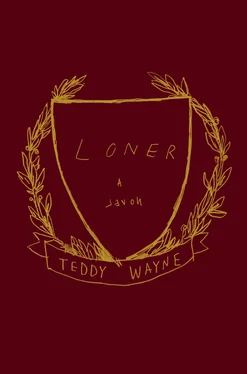

 .
.